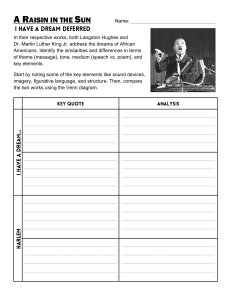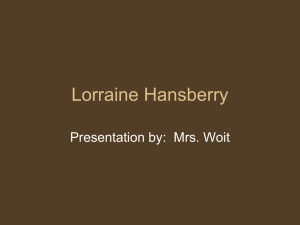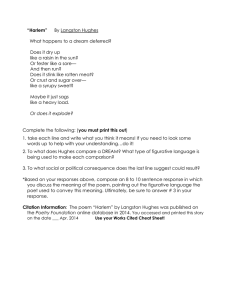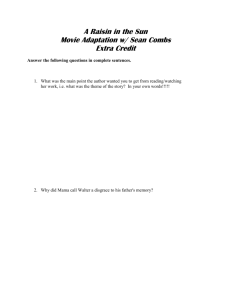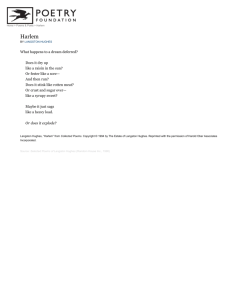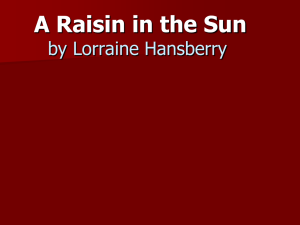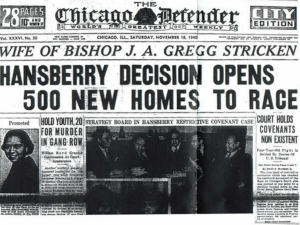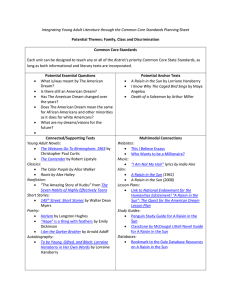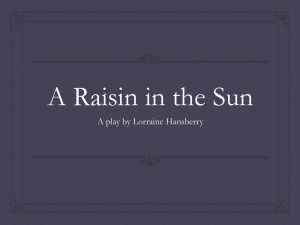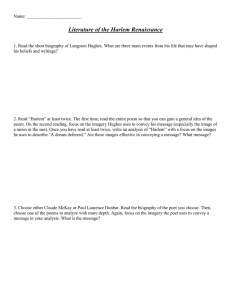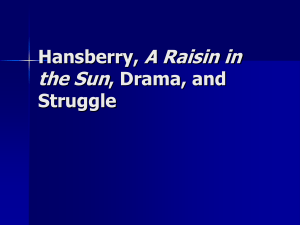Pre-Reading Information: Lorraine Hansberry: Chicago born, 1930
advertisement
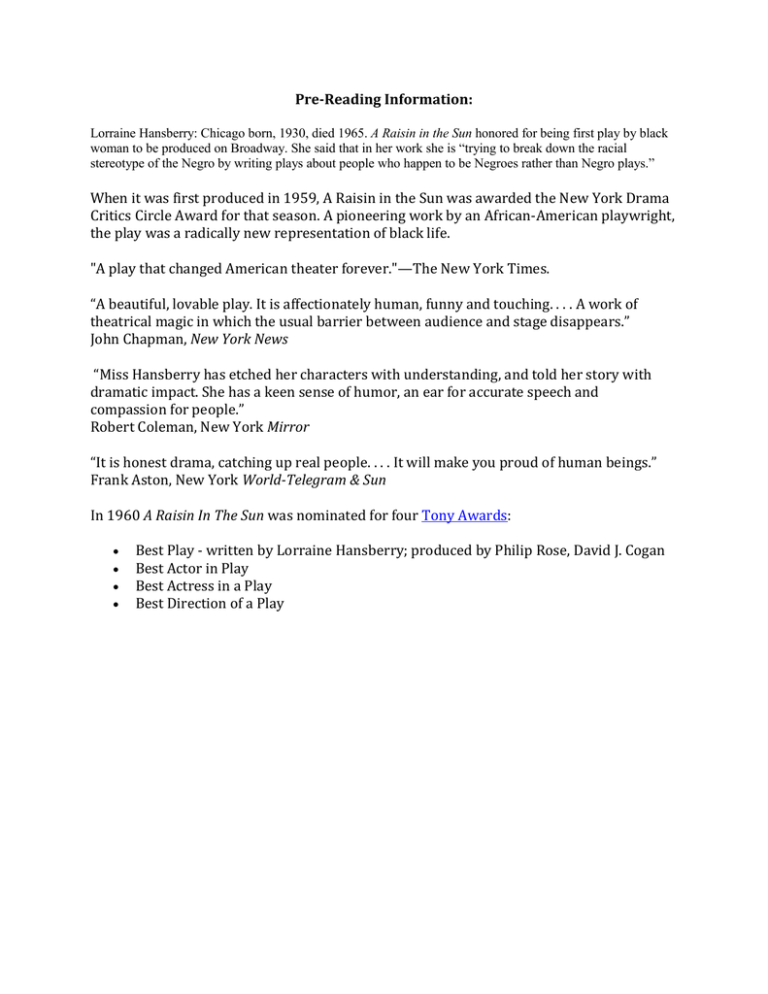
Pre-Reading Information: Lorraine Hansberry: Chicago born, 1930, died 1965. A Raisin in the Sun honored for being first play by black woman to be produced on Broadway. She said that in her work she is “trying to break down the racial stereotype of the Negro by writing plays about people who happen to be Negroes rather than Negro plays.” When it was first produced in 1959, A Raisin in the Sun was awarded the New York Drama Critics Circle Award for that season. A pioneering work by an African-American playwright, the play was a radically new representation of black life. "A play that changed American theater forever."—The New York Times. “A beautiful, lovable play. It is affectionately human, funny and touching. . . . A work of theatrical magic in which the usual barrier between audience and stage disappears.” John Chapman, New York News “Miss Hansberry has etched her characters with understanding, and told her story with dramatic impact. She has a keen sense of humor, an ear for accurate speech and compassion for people.” Robert Coleman, New York Mirror “It is honest drama, catching up real people. . . . It will make you proud of human beings.” Frank Aston, New York World-Telegram & Sun In 1960 A Raisin In The Sun was nominated for four Tony Awards: Best Play - written by Lorraine Hansberry; produced by Philip Rose, David J. Cogan Best Actor in Play Best Actress in a Play Best Direction of a Play Pre-Reading Questions: What dreams do you have for the future? What would you do if you didn't get your dream? What is the “American Dream”? Analyze Hughes’ poem “Harlem” – What is the theme or central message? What figurative language does Hughes use? What is the effect of this figurative lagnague? Langston Hughes The title of A Raisin in the Sun comes from the poem Harlem by Langston Hughes. What happens to a dream deferred? Does it dry up Like a raisin in the sun? Or fester like a sore-And then run? Does it stink like rotten meat? Or crust and sugar over-Like a syrupy sweet? Maybe it just sags Like a heavy load. Or does it explode? -- Langston Hughes *To defer something means to delay or postpone. Annotations: 1. Sketch the set from a bird’s eye view. What is the layout? What does it look like? How does the set add to the story? How is the mood of the play described through the set? 2. Compare and Contrast to other eras of theater: Grecian Different Similar Shakespearean / Elizabethan Different Similar Modern (2000s) Different Similar 3. Themes: What important quotes support these themes? What is Hansberry’s message? What should the audience take away from this script? Search for dignity and self-respect Unfulfilled dreams Search for identity and self-fulfillment Faith in the past vs. living in the present Strength and endurance of the human spirit Changing roles of women The nature of marriage transformed The real meaning of money Man is trapped by his environment Materialism vs. intellectualism 4. Characterization: How are the characters described (STEAL)? How do the characters interact? Is this family functional or dysfunctional? 5. Symbolism: Identify specific symbols used within the script. What is Hansberry trying to articulate by using these symbols? 6. Stage Directions and Theatrical Devices (monologues, asides, etc.): How does the detailed stage directions contribute to the script and characters? When and how are monologues used? What is their effect? 7. OTHER.
